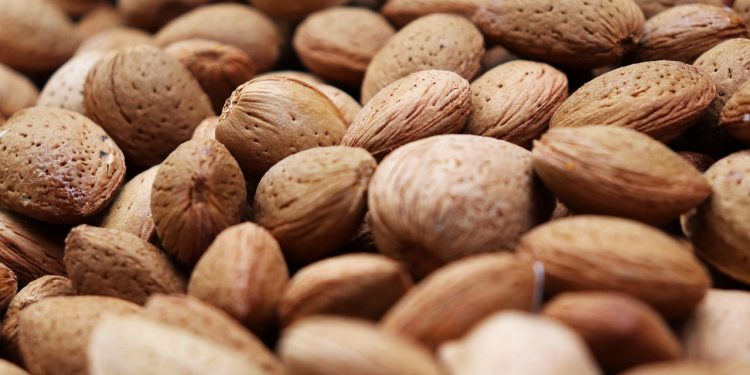Los Angeles: Daily consumption of almonds may help reduce the severity of facial wrinkles and skin pigmentation in post-menopausal women with a skin condition, a study claims.
The research, published in the journal Nutrients, confirms and expands on a 2019 study which found that a daily snack of almonds in place of other nut-free snacks improved measures of wrinkle width and severity in postmenopausal women.
The new study involved 49 healthy postmenopausal women with Fitzpatrick skin type 1 or 2, which is characterised by increased tendency to burn with sun exposure.
Researchers at the University of California (UC), Davis in the US randomly assigned participants to one of two groups.
In the intervention group, women ate almonds as a snack, which accounted for 20 per cent of their total daily calorie intake, or 340 calories per day on average (about 60 grams).
The control group consumed a calorie-matched snack that also accounted for 20 per cent of calories: a fig bar, granola bar or pretzels.
In addition to the snacks, study participants consumed their regular diets and did not eat any nuts or nut-containing products.
Skin assessments were made at the start of the study, and again at eight weeks, 16 weeks and 24 weeks.
At each of these visits, facial wrinkles and facial pigment intensity were assessed using high-resolution facial imaging and validated three dimensional (3D) facial modelling and measurement.
Skin hydration, transepidermal water loss (TEWL) and excretion of sebum — an oily, waxy substance produced by the body’s sebaceous glands — were also assessed.
TEWL is the amount of water that passively evaporates through skin to the external environment due to water vapor pressure gradient on both sides of the skin barrier.
The researchers saw a statistically significant reduction in wrinkle severity in the group consuming almonds, finding that at 16 weeks, there was a reduction of 15 per cent and at 24 weeks, a reduction of 16 per cent.
There was also a statistically significant decrease in overall facial pigment intensity or unevenness of skin tone in the almond group — a 20 per cent reduction by week 16 that remained so at week 24, they said.
The researchers noted that body weight remained constant for both the almond group and the control group from baseline to 24 weeks.
“Daily consumption of almonds may be an effective means of improving the appearance of facial wrinkles and skin tone among postmenopausal women with Fitzpatrick skin types I and II. Consumers may describe this reduced pigmentation effect as having a more even skin tone,” said Raja Sivamani, dermatologist and lead researcher of the study.
“Our findings emphasise the need to look at almonds as a whole food with multiple nutrient components including alpha-tocopherol (vitamin E) and good unsaturated fats, rather than oversimplifying potential benefits due to one nutrient alone.
According to Sivamani, almonds are high in alpha-tocopherol which has antioxidant functions, and may be partially responsible for the effects that we see in both wrinkles and skin tone in postmenopausal women.
The researchers noted that the limitations of the study include its duration of 24 weeks, and as such results do not provide insight into the potential effects of longer-term almond intake.
Additionally, the study participants were postmenopausal women with Fitzpatrick skin types I and II, characterised by increased tendency to burn with sun exposure.
The team noted that more research is warranted to investigate the impact of almond consumption in other populations.
PTI







































